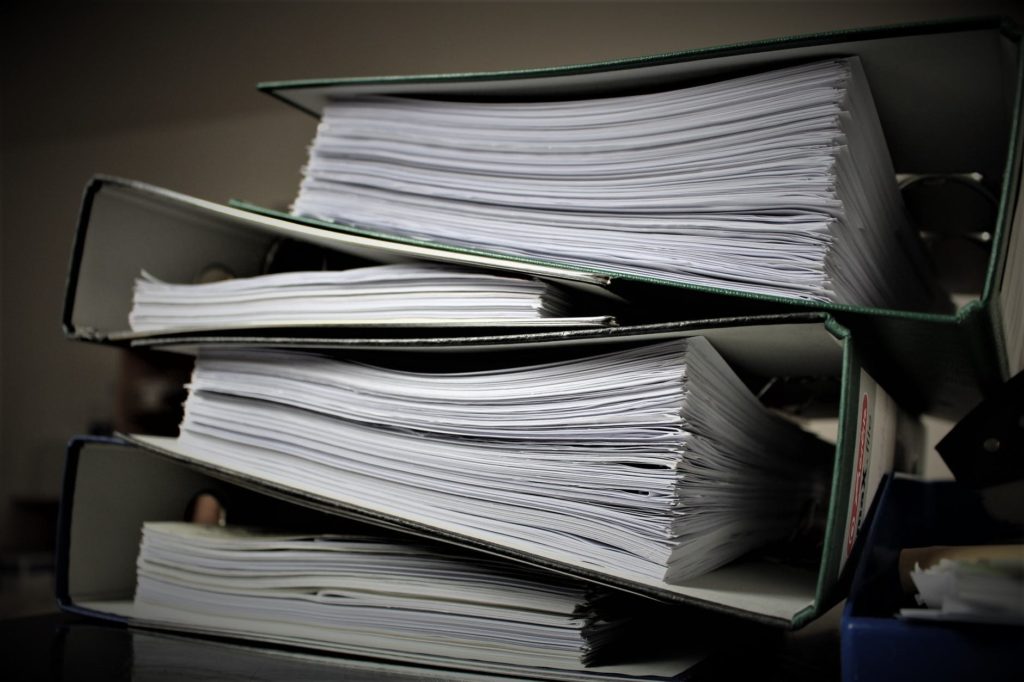
The steps you take before your day in court will hugely influence your chances of winning the case. It is very crucial that you, as the defendant, prepare yourself adequately and present your case in the best way possible if you want to win.
Here are some tips on how to get ready for your hearing:
Read The Fine Print
As the defendant, you must read the complaint carefully and understand all the elements involved before preparing your case. Remember that this is the piece of document that the judge will be expecting explanations on. Therefore, understand what exactly the complaint means and then come up with a list of evidence you need to either disapprove the complaint.
Generally speaking, you’ll need witnesses and documents like contracts to support your case. You must also screen the accuracy of the case. If there’s any inaccurate information on the complaint, identify the evidence you’ll need to call it out and present your version of the story.
Collect All The Necessary Documents
Compile contracts, letters, emails, and any other documents showing communication between you and the other party.
Look at any documents that may require additional pieces of evidence to support them. For instance, if an invalid contract is involved, it’s vital to collect or prepare a legal argument to prove that the contract is not valid and should not be used by the other party. This helps with countering and refuting pieces of evidence that the plaintiff may present.
It’s also important to gather evidence of relevant events that happened until the date of the official complaint and the hearing itself. Were there any additional damages? Were there any payments done? Did you try to mediate the issue before the hearing?

Prepare Your Case
After acquiring all the documents you need, sit down and start building your case. Look at the case and identify all the items the plaintiff has to prove. Identify the possible pieces of evidence they are likely to use during the hearing. How strong is this evidence? Are there any weaknesses you can exploit?
Here are some tips on how to get organized:
- Make copies of all the documents you intend to use. Have a copy for yourself, the judge, and the plaintiff.
- Highlight all the key details in your documents. This makes it easier to present your case. It also reduces the chances of forgetting key elements when making your argument.
- Consider labeling your documents. This is especially vital if you have lots of evidence.
- Arrange your documents in the order you’ll use them.
Make sure to store your documents properly throughout the process. The experts at phippsreporting.com explain that it’s crucial to get the correct load file for your needs. Effective document management can be done electronically or with exhibit binders. Whichever you choose, ensure all your documents, including video evidence, transcripts, translations, etc., are stored correctly and can be retrieved with ease.
It’s imperative to be honest with yourself while preparing your evidence. If you see that your case is clearly weak, find a way to minimize the damage with something like an out-of-court settlement.
Prepare Your Witness
Reliable witnesses will strengthen your case tremendously. However, they can only add value if they present their testimony properly. Therefore, it’s in your best interest to find and prepare your witnesses for the hearing as early as possible.
How do you prepare witnesses? Help them refresh their memory of the events in question without distorting or altering the details. You should also help your witnesses to dress appropriately for the hearing and speak clearly to the court.
Reiterate the importance of telling the truth to your witness before they take the stand.
Don’t be too desperate to use witnesses and ignore clear red flags. Stick to credible individuals who can actually help your case in a big way and avoid anyone with an incentive to lie in your favor.
Practice Presentation
Practice with a colleague and ask for feedback on how well you’ve presented the case. You can also imitate a mock trial and tell them to take the opposing side and ask you questions.
This will help you identify possible loopholes in your arguments long before the hearing. It also gives you the confidence you need for the day in court.
The importance of thorough preparation before presenting your defense in court cannot be overstated. It’s actually one of the distinguishing factors between successful and struggling attorneys. Prepare in advance, and you’ll have a seamless day at the court.
Support Northern Colorado Journalism
Show your support for North Forty News by helping us produce more content. It's a kind and simple gesture that will help us continue to bring more content to you.
BONUS - Donors get a link in their receipt to sign up for our once-per-week instant text messaging alert. Get your e-copy of North Forty News the moment it is released!
Click to Donate